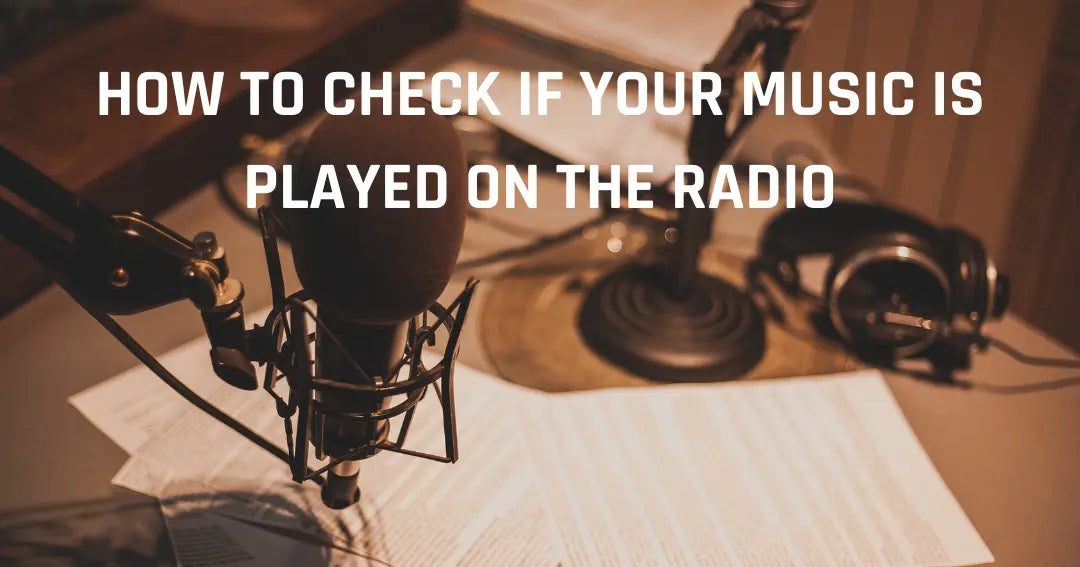The music industry can feel like a wild jungle—one where you throw your latest track into the universe and hope it gets picked up by the right ears. But here’s the thing: hoping isn’t a strategy. You need to track your radio airplay like a pro. The question is, how?
How to Track Your Music on the Radio Like a Pro
So, you’ve put your heart, soul, and maybe a few tears into your latest song. It’s out there, floating across streaming platforms and (hopefully) getting radio spins. But unless a DJ personally calls you up and says, “Hey, we just played your song for the third time today,” how do you know if your music is actually hitting the airwaves?
Spoiler alert: It’s easier than you think!

1. Use Radio Airplay Monitoring Services
The quickest and most efficient way to track your radio airplay is through specialized tracking tools. These services scan thousands of stations worldwide, so you don’t have to sit by the radio with a notepad like it’s 1999.
Mediabase – Tracks spins across U.S. and Canadian stations. Big labels use it. Indie artists can, too! This tool is widely used for analyzing trends in radio play, making it essential for artists looking to break into mainstream airwaves.
BDS (Broadcast Data Systems) – Nielsen’s powerhouse for radio tracking. If your song is playing, BDS knows. It uses digital fingerprinting technology to track exact airplay data, making it incredibly reliable.
Radio Airplay by SoundExchange – Perfect for tracking online and satellite stations. If your music is being played on platforms like SiriusXM or Pandora, this service ensures you don’t miss out on potential royalties.
WARM (World Airplay Radio Monitor) – A go-to for indie artists, tracking over 28,000 stations globally. This tool is particularly useful for identifying new markets where your music is gaining traction.
2. Check With Your PRO (Performance Rights Organization)
If you’re registered with a PRO like ASCAP, BMI, or SESAC, you should be getting reports about your radio play. However, these reports aren’t always real-time or super-detailed. They’re useful for tracking royalties but not the best if you want instant data.
PROs collect performance royalties when your music is played publicly, including on the radio. However, the delay in reporting can be significant, sometimes taking months before airplay appears in your earnings statement. To stay ahead, combining PRO data with real-time monitoring services is ideal.
3. Google It (Yes, Really)
Some stations publish their playlists online. A quick Google search like:
“[Your Artist Name] playlist site:[radiostationwebsite.com]”
might reveal if your track is in rotation.
Additionally, websites like Yes.com or Spinitron allow you to search radio playlists across multiple stations. This method isn’t foolproof, but it’s a quick and free way to check if your music is making waves.
4. Shazam & SoundHound
If listeners hear your track on the radio and Shazam it, guess what? That’s data you can track! Keep an eye on Shazam trends to see if people are discovering your music through airplay.
Many industry professionals monitor Shazam charts to see which songs are gaining traction. If your song starts popping up frequently, it could be a sign that it’s being played more often than you realize.
5. Ask Your Fans to Help
Your fans are like your personal research team—if you engage them correctly. Ask them to tag you on social media whenever they hear your song on the radio. This isn’t just a great way to track spins, but it also boosts engagement and builds hype around your music.
Encourage listeners to post a short video or story on Instagram or TikTok when they hear your song. Not only does this create organic promotion, but it also helps you gauge which stations are playing your music the most.
Struggling to get your music heard? Pitch-Us helps independent artists land their songs on radio stations, playlists, and media outlets —without the guesswork. We craft personalized pitches, connect you with industry pros, and track your airplay so you know exactly where your music is making waves. Ready to get the exposure you deserve? Let’s make some noise! 🚀
Why Tracking Your Radio Airplay Matters
If you’re serious about making it in the music industry, you need to know when and where your music is being played. Here’s why:
Royalties – More airplay = more money (assuming you’re registered with a PRO!). You don’t want to leave money on the table by missing out on royalties from spins you didn’t know about.
Tour Planning – If your song is getting spins in a specific city, maybe it’s time to book a gig there! This strategy helps artists maximize their exposure and build fan bases in key locations.
Music Marketing – Knowing which stations support your music helps you build relationships with DJs and station managers. Developing strong connections with radio professionals can lead to more airplay and future opportunities.
Industry Credibility – If you’re pitching your music to labels or playlist curators, showing proof of radio airplay can add serious weight to your pitch. It demonstrates demand for your music and increases your chances of securing deals.
What to Do Next
Now that you know how to track your radio airplay, here’s your action plan:
Sign up for a tracking service – Pick one that fits your budget and music career level.
Check PRO reports – Make sure your music is registered and you’re getting those royalties.
Engage your audience – Ask fans to help you track airplay.
Leverage data for marketing – Use radio play insights to plan your next moves.
Follow up with radio stations – If you notice a particular station playing your track frequently, reach out and build a relationship. This could lead to interviews, live sessions, and even more exposure.
Final Thoughts
Tracking your music’s radio presence isn’t just about feeding your ego (though, let’s be honest, it’s a nice confidence boost). It’s about knowing your impact, getting paid, and strategizing your next career moves.
By using the right tools, staying engaged with your audience, and leveraging radio airplay data effectively, you can take your music career to new heights.
So, are you ready to start tracking?





Laisser un commentaire
Ce site est protégé par hCaptcha, et la Politique de confidentialité et les Conditions de service de hCaptcha s’appliquent.